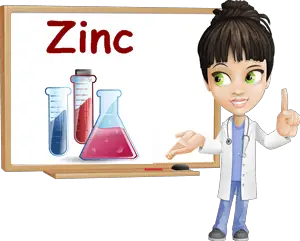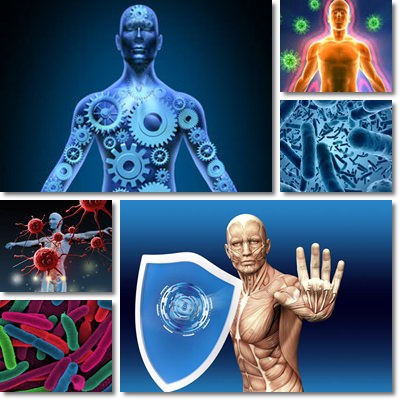Having zinc in our diet is a genuine reassurance of good health. As a mineral of great dietary importance, zinc stimulates the immune function by increasing the body’s response to bacteria and viruses. In addition to this, it supports digestion, helps keep diabetes under control and accelerates the wound healing process. Moreover, zinc increases energy levels, combats acne, increases fertility and helps us deal better with stress. Studies suggest it can contribute to increasing longevity, along with molybdenum. Overall, zinc should not lack from our diet.
Because it plays a vital role in protein synthesis and regulates the production of white blood cells, zinc is essential for keeping in good health. It is predominantly found in muscles, red and especially white blood cells, in our retina, liver, kidneys, pancreas, bones and skin. Sufficient dietary zinc can increase male fertility and support conception. Moreover, the mineral provides benefits for anyone with eczema, atopic dermatitis, flaky scalp and acne.

Zinc food sources
Almonds, pecans, peas, ginger root, turnips and whole grains are all great sources of zinc. Meat is an excellent source of the mineral because the zinc it contains is highly bioavailable, meaning our body can absorb more of it than it does the one in plant sources. Some plant sources may also contain various compounds that bind to the mineral and partially inhibit its absorption, encouraging a deficiency despite actual intake of the zinc containing foods. Increasing intake of plant food sources of zinc or supplementation can help restore balance and ensure our body gets all the zinc it needs.
Zinc in the body
Because the salivary glands, the pancreas and other organs ‘secrete’ zinc, reserves may deplete rapidly, especially in young adult men. Contributing to the ‘loss’ of the mineral are our white blood cells which actively use zinc to function properly and sustain the immune system response. For these reasons, a diet providing adequate amounts of zinc is needed to keep us healthy and ensure that our immune system and most important organs work properly.
How much zinc?
Researchers believe that the human body contains two to three grams of zinc at all times. Though small, this amount can support more than 300 different body functions. Moreover, around 100.000 proteins in our body contain zinc, which makes it even more important to meet our daily requirements. The current recommended daily intake of zinc is around 10-11 mg and represents a minimum amount meant to prevent a deficiency. Emerging research suggests the minimum intake of the mineral should be up to 3 times higher. Still, the standard reference remains 10-11 mg for the average adult.

Zinc benefits, uses and interactions
Just as too little zinc is bad for you, too much zinc can have unpleasant to serious side effects for one’s health as well. For example, exceeding daily requirements may cause nausea and even vomiting, but also more serious side effects such as neurotoxicity. Caution is required when taking food supplements in combination, such as zinc and iron, zinc and copper, or other vitamins or minerals.
While vitamin C for example is harmless and can be taken in rather high amounts without serious side effects, except maybe for diarrhea (at doses of 2, 3 or 5 grams), taking iron together with zinc can impair zinc absorption. Similarly, taking copper with zinc can result in reduced zinc absorption. If you need to supplement with both iron and zinc, or copper and zinc, it’s a good idea to take them at separate times, at least 2-3 hours apart.
As far as its health benefits are concerned, the mineral stimulates recovery after chronic infections and restores and enhances the body’s ability to heal itself. Adequate zinc supplementation will lead to faster and better wound healing. In men, zinc supports fertility as well as the proper development and overall health of the reproductive system. Because it is of crucial importance for the health of the male reproductive system, the mineral is considered a fertility booster.
In women, it supports a healthy birth and lactation in particular. Zinc is also important for hair and nail health. An intake of 15-45 mg of zinc per day can improve night vision, researchers say. There are also studies that suggest zinc is an efficient treatment method against acne. Certain topical anti-acne medications use zinc as their main ingredient for reducing bacterial count on skin and preventing acne breakouts. Topical preparations containing the mineral are often prescribed for the treatment of mild, moderate and severe acne. In some cases, the mineral is believed to be more efficient than some antibiotics, although its role is preventative rather than curative.
Zinc deficiency symptoms
A more severe zinc deficiency can result in eczema, also known as atopic dermatitis, a chronic skin inflammatory disease. Other deficiency symptoms include: impaired or poor growth, delayed bone formation, weight loss as a consequence of loss of appetite, loss of smell and taste, rough or pale and dull skin, sudden loss of hair, low blood pressure (hypotension), depression, fatigue and white spots on fingernails. Symptoms may vary depending on the severity of the deficiency.
